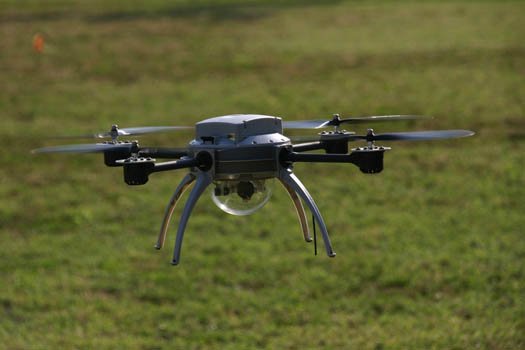Guest Post: Why I Voted Against The Drone Bill

Technology has enhanced our lives in so many ways. As citizens we have access to volumes of information that a mere decade ago would have been unthinkable. But with our extraordinary advance in technology also come significant privacy concerns. Emergent technology in the form of drones, satellites, smartphones, etc. has made it easier for both the public and private sectors to gather information about our habits and lives.
Recently the North Dakota Senate struck down a bill which would require a search warrant before a drone could be used by law enforcement. Many of the arguments against this legislation dealt with certain economic impacts that could effect UND’s ability to procure a highly sought after drone program. The arguments in favor of the legislation centered around our need to enhance fourth amendment protections in relation to law enforcement application of drone technology. I disagree with both of these arguments and voted against the bill.
Since 2003 I have been a criminal defense attorney in North Dakota. I have written and argued over one hundred fourth amendment cases. I argue for the fourth amendment protection for citizens on almost a weekly basis. If civil liberties are threatened or are under assault, no argument in favor of economic development should carry any weight. Our civil liberties should not be for sale at any cost.
However, the fourth amendment has come under this type of scrutiny before. Telephoto cameras, airplanes, in car video cameras, police scanners, and many other technological advances have all caused concerns that our fourth amendment rights were being eroded as technology advances. I would contend that the fourth amendment has withstood the test of time and that our founding fathers were exceptionally brilliant people. However, I do believe the legislature has an active role to play in our citizens right to privacy concerns relating to both the public and private sector.
My concern with this type of legislation is that it dealt with the tool, in this case drones, and not the spaces and information we are attempting to keep private. By carving out fourth amendment protections for particular tools, we have created two separate problems. One, we create a piece of legislation that constantly has to chase technology, or stand inadequate as technology advances. Two, by requiring warrants for drones we create a situation where we tacitly imply that the warrantless gathering of information by other means is acceptable.
For example, if a law enforcement agency conducting a preliminary investigation into Rob would need a warrant to utilize a drone to fly over and photograph his backyard, but they would not need a warrant to utilize a plane. Which one do you think they are going to use? This type of legislation causes significant mechanical problems in defending fourth amendment arguments against planes as it relates to the gathering of information without a warrant because we have not legislated the same restrictions as drones. Also, this bill did nothing to limit drone use in the private sector. Under current fourth amendment analysis, just about any information gathered by a private citizen may be turned over to law enforcement and utilized free of fourth amendment protections.
After this bill was defeated, I met with some supporters of the drone bill. I do not pretend that they agree with my position. However, we have started discussing ways in which we can legislate protections to our privacy. These protections should deal with the spaces and information we are serious about keeping private. We should not concern ourselves with the tool used to violate this privacy. We should protect the spaces and information in statute and make it clear to any organization, whether public or private, that the violation of our privacy will not be tolerated.
By law we can create a right to privacy that will protect us from unwarranted fourth amendment violations by government. By law we can create a right to privacy that will allow for civil remedies against private citizens who choose to gather private information against us without our consent. We can clearly define spaces which we believe are secure from public and private intrusion. We can ensure that regardless of the tool used, these violations will not be tolerated. If the debate surrounding the drone bill showed us anything, it was that privacy concerns are real.
Whether it is drones, satellites, or Google glasses, information gathering has never been easier. However, that has been true through the course of time. We should not react to these situations by carving out protections by each new tool used, we should clearly define what is private, what our citizens demand is private, and protect that privacy.







